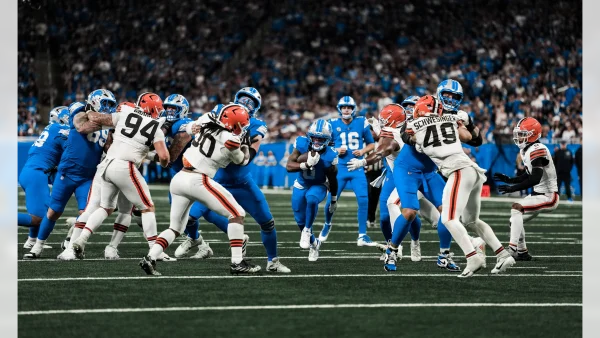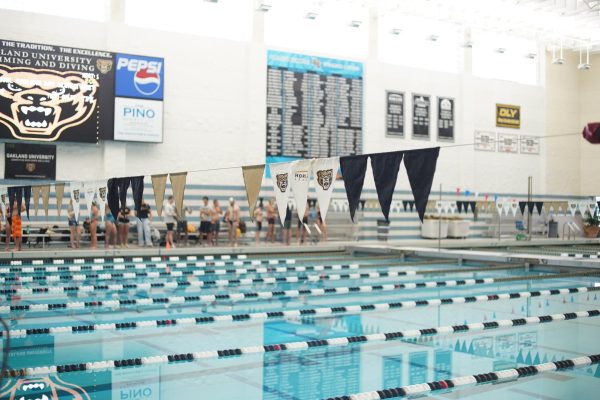Carrying the weight of performance expectations
Photo courtesy of Oakland University Athletics.
Photo courtesy of Oakland University Athletics.
Athletes have time and again been put on pedestals and held to a higher standard than others. The fans only see one side of the person — the athlete. However, there are many masks worn by every athlete, especially collegiate athletes.
Athletes wear the masks of human, student, friend, athlete, family member and more. Putting these standards on athletes does not just start when they hit the professional level — it starts the moment they start competing.
The weight of these standards and expectations to succeed can be unbearable. Whether it be for family pride, scholarships or other reasons, it can make balancing life difficult. As top-of-their-game as they perform, they, too, are human and have off days.
“In swimming, one of the most frustrating and mentally challenging things is knowing that you can’t drop time every race, and every practice isn’t going to be the best,” Oakland University men’s swimmer Ben Davis said. “It is really frustrating, but when swimming at the collegiate level, you develop the understanding that it is impossible to be at your best 24/7.”
Men’s golfer Anthony Comito has his own method for dealing with off days.
“I try and control the things that I can control — such as my attitude and decision making,” Comito said. “My coaches and teammates are always supporting and encouraging me, even if I am not having the best day on the course.”
While competing at levels that are progressively increasing, you learn ways to cope with setbacks.
“The way that I cope with that is taking each season one day at a time,” Davis said. “If I’m not having a great practice, I try to focus on one thing that I know I can fix or improve. I know that tomorrow is a new day and all of my coaches will support me as long as I don’t get discouraged.”
While dealing with those struggles on the field/pitch/court/green and more, athletes still face the challenges that present themselves in their classrooms and lives.
Comito shared how he tackles the challenges of the classroom.
“I make sure that I know everything I have to get done, and then I set aside time in each day to make sure I get everything done,” Comito said. “It sometimes even requires planning days [or] weeks in advance.”
Davis seconds this strategy, adding that he carries a weekly planner with him wherever he goes.
School and athletics is very challenging, both mentally and physically. In order to keep up with it all, you have to take time for yourself to rest and recharge.
“I try to balance my social life by having my swim friends and my friends who aren’t athletes,” Davis said. “I make sure that when I’m with my non-athlete friends, I never talk about swim unless I’m asked. It just makes for some better conversation, and a nice break from ‘work talk.”’
However much weight each of those masks worn by the athletes might carry, being a collegiate athlete means they would not prefer it any other way.
“My favorite thing about being a student athlete is always having something to do — whether it’s class, workouts, golf or meetings,” Comito said.
For Davis, the best part of living life as a student athlete is the opportunities that come with it.
“It gives me the opportunity to continue doing what I love, meet new people from all around the world and the ability to study at a higher level,” Davis said. “Without being a student athlete, my life would be drastically different.”






